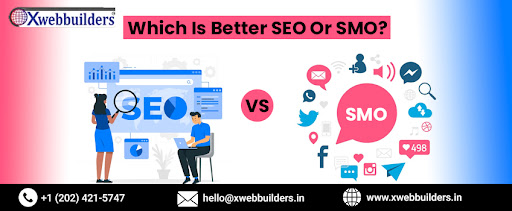
Creating a Huge Promotion Algorithms That Works for You
Having spent countless sleepless nights coding, testing, and improving algorithms, we can confidently say that the code itself represents well less than half of the overall likelihood for success when applied to business scenarios. To simplify: algorithms are susceptible to ‘garbage in, garbage out’ effectiveness. An algorithm has three core components that all must align for applied success:
- An organized, rich, and transformed data set - An algorithmic model
- An optimization function
It is not my intention to write a math-heavy blog that is only valuable to the most math-centric readers, so we will spend most of our time focusing on the data and optimization opportunities and let the smart people at Google continue to work on their model.
The Role of Your Data
Data is essential for promotion algorithms in marketing to provide accurate and targeted recommendations for promotions and advertising messages. By leveraging data, businesses can improve their customer engagement, loyalty, and sales. Data plays a critical role in promotion algorithms for marketing. These algorithms use data analytics and machine learning techniques to analyze large volumes of customer data and provide recommendations for targeted promotions.
Choosing the Data to Power Your Algorithms
More data is not often the best solution. In fact, most good model building will first address the relevance and significance of input data to model success and remove inputs with high variance, which are typically unreliable or not valuable to the end result. In search, this data comes in the form of the keywords, keyword strategy, organization of keywords, and additional behavioral and ‘results’ data based on the engagement of those keywords.
It's easy to oversimplify this process, especially if you ‘over apply’ human opinion. At Rise, we are constantly identifying keywords that may not be the most intuitive additions to campaigns but do deliver measurable business impact. A smart digital marketer will allow this discovery process to play out, let the data lead the way, but all too often we find ourselves limiting our own digital horizons due to ‘gut feeling’ or ‘experience.’
Organizing Your Data to Work Properly
The data needs to be organized and formatted in the right way to enable maximized results. This can be a painstaking process but is absolutely unavoidable. Each data point should be reliable and mirrored in format to other figures within the same metric.
Granularity of build is often the “secret sauce” many agencies rely on to beat their competitors. We refer to this build often as the fingerprint of an agency. Each business will benefit differently from the nuance of search structure and it's important to understand the outcomes the business needs so the most optimized search account can be deployed.
Building Your Optimization Model
We now have strong data, a world class structure, and of course a platform-provided algorithm with which to work, so what now? The next decision can be critical and is often under-appreciated: the optimization model.
At its simplest, the algorithm needs to understand what you want to optimize. This is both a business question and a data/technology challenge. To this complex question, less-sophisticated clients often answer simply “yes,” thinking “of course we want to optimize my campaign throughout its run!” Why doesn’t “yes” work? The question isn’t merely “Should we optimize?” It’s multi-part.
Using Algorithms For Promotion
Promotion algorithms for marketing refer to the use of mathematical and statistical models to optimize the promotion and advertising strategies of a business. These algorithms use data analytics and machine learning techniques to analyze large volumes of customer data and provide recommendations for targeted promotions. Here are some common promotion algorithms used in marketing:
- Collaborative Filtering: This algorithm analyzes user behavior to predict which products or services a customer is likely to be interested in based on their previous purchases or interactions.
- Personalization: This algorithm tailors the promotion and advertising messages to the unique preferences and interests of each customer, based on their demographics, behavior, and history.
- Predictive Modeling: This algorithm uses historical data to predict future customer behavior and preferences, allowing businesses to optimize their promotions and advertising messages accordingly.
- A/B Testing: This algorithm compares two different versions of a promotion or advertising message to determine which one is more effective, based on customer engagement and conversion rates.
- Dynamic Pricing: This algorithm adjusts pricing in real-time based on customer behavior, such as purchase history or demand, to optimize revenue and profitability.
Overall, promotion algorithms for marketing can help businesses increase customer engagement, loyalty, and sales by optimizing the promotion and advertising strategies based on data-driven insights.
Custom Promotion Algorithms
A custom promotion algorithm is a tailored algorithm designed to meet the specific needs and goals of a business. It is built using data analytics and machine learning techniques and can help businesses optimize their promotion and advertising strategies to achieve their objectives. To develop a custom promotion algorithm, the following steps may be taken:
- Define the business objectives: The first step is to clearly define the business objectives for the promotion algorithm, such as increasing sales, driving customer engagement, or improving customer retention.
- Gather Data: The next step is to gather relevant data about customers, such as purchase history, demographic information, and behavior patterns.
- Analyze The Data: Once the data has been gathered, it must be analyzed to identify patterns and insights that can inform the development of the promotion algorithm.
- Develop The Algorithm: Based on the insights gained from the data analysis, a custom promotion algorithm can be developed that is tailored to the specific needs of the business.
- Implement and Test the Algorithm: Once the algorithm has been developed, it should be implemented and tested to ensure that it is effective in achieving the business objectives.
- Continuously Refine the Algorithm: The promotion algorithm should be continuously refined and updated based on new data and insights to ensure that it remains effective in achieving the business objectives.
A custom promotion algorithm can help businesses optimize their promotions and advertising strategies to achieve their goals, such as increasing sales or improving customer engagement. By tailoring the algorithm to the specific needs of the business, it can provide targeted and effective recommendations for promotions and advertising messages.
Conclusion
Mathematics in digital marketing was once a tremendous differentiator between the organizations that used it, and the ones that didn’t. However, over the last few years, we have seen increasing parity in the digital space and now excellence in execution is the hallmark of real differentiation. If nearly all digital marketers use Google, and hence the algorithm and tools within, what can a professional marketer do to be the best?
The Google platform can ingest your properly-formatted, business-centric calculated values and in fact optimize towards them, creating a very customized and focused application of the “same algorithm everyone uses.” Though we will all use the same Google algorithm, the inputs we enable it to ingest combined with the custom calculated optimization method we aim it toward create a totally unique and expertly applied approach which can easily differentiate you in the crowded digital space, yielding a competitive advantage to build on. For more information or to avail our services, Xwebbuilders.in .



